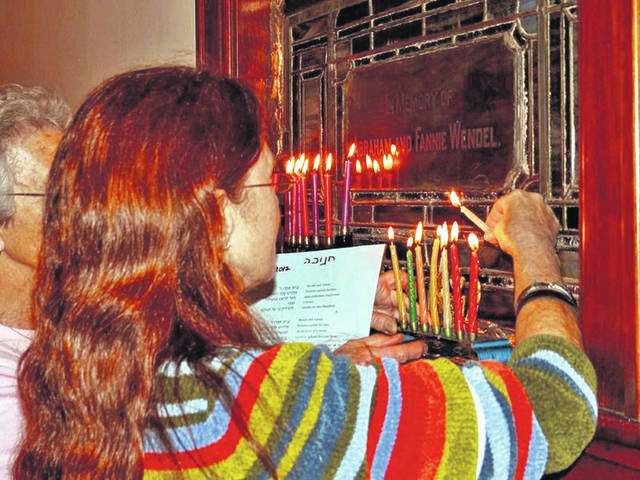
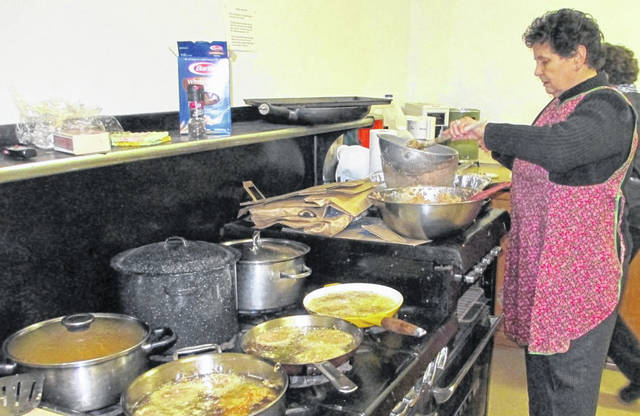
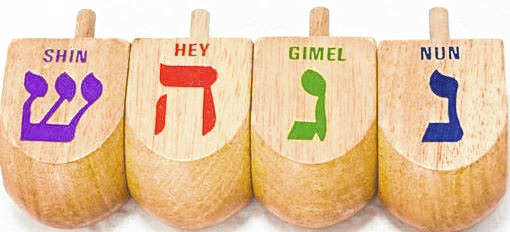
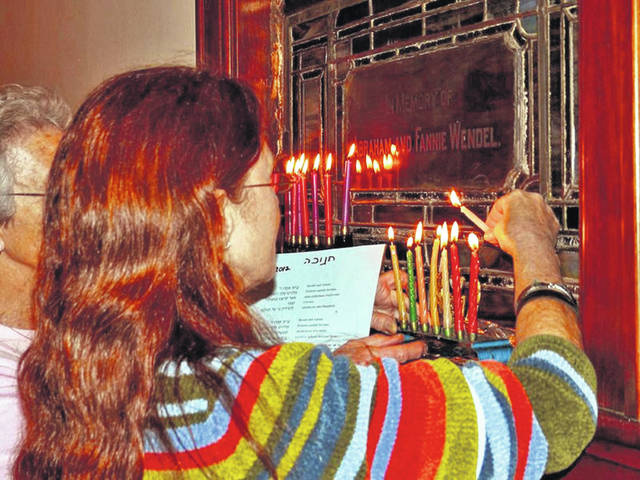
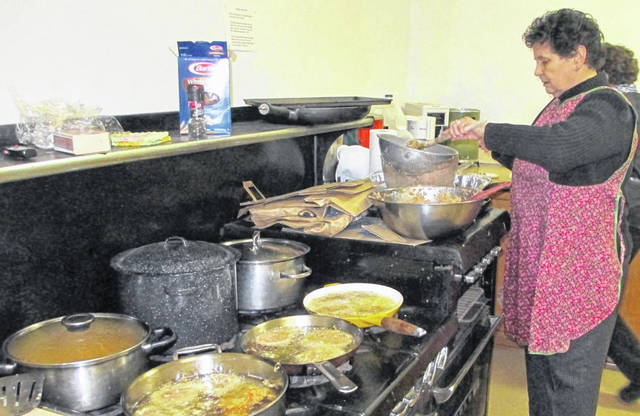
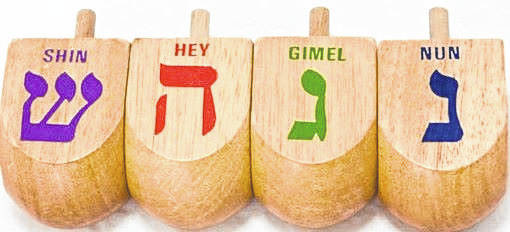
DARKE COUNTY — When the first round COVID-19 closures occurred in March, the passage of days into weeks, and now, into months, gives us an opportunity to pause and consider the purpose and meaning of the freedoms we enjoy, and how very different our lives would be without them.
As the days grow shorter and evenings grow longer, we look for the light where it may be found, among family and friends, in our homes and houses of worship, to remind us that we have purpose, and that we are not alone. This year, in remembering one special holiday – Hanukkah – people can reflect upon the goodness of God when faced with dire circumstances, and celebrate a miraculous provision with gratitude and joy.
Hanukkah, which means “dedication,” is also known as the Festival of Lights, and begins on the 25th of the month of Kislev, according to the Hebrew calendar. Based on the cycles of the moon, Hanukkah can fall anytime between November and December. This year, Hanukkah’s eight-day celebration begins Dec. 10 and ends Dec. 18.
Hanukkah commemorates the rededication of the Temple in Jerusalem, and the miracle which accompanied it, in the second century B.C. According to historical records, in 168 B.C, the Seleucid king of Syria, Antiochus IV Epiphanes, outlawed the Jewish religion and ordered all Jews to worship the Greek gods. As his soldiers entered Jerusalem, thousands of people were massacred, and the city’s holy Temple was desecrated by erecting an altar to Zeus and sacrificing pigs. A brave Jewish priest named Mattathias, along with his five sons, launched a two-year rebellion against Antiochus. When Mattathias died in 166 B.C., his son, Judah, also known as Judah Maccabee (“the Hammer”), successfully drove the Syrian army out of Jerusalem. The temple menorah had to remain burning until a new altar could be built and installed. However, only one flask of oil remained which was only enough to last for a single night. According to the Talmud, it stayed miraculously lit for eight days, the very amount of time needed to press new, untainted olive oil. Hanukkah is an eight-day festival commemorating the rededication of the temple and the miraculous eight days of God’s provision to accomplish it.
Many rituals surround the celebration of Hanukkah, beginning with the lighting of the nine-branch menorah, called the Hanukkiah. Taking the shammash, or “servant” candle, from the middle, one candle is placed each evening (from right to left) for eight consecutive days. The first night of Hanukkah is special, in that three traditional blessings are spoken or sung; afterwards, two blessings are spoken or sung each evening. A new candle is lit each evening, beginning with the newest (from left to right). By the eight night, all eight candles, along with the shammash, are lit.
Another tradition, cooking fried foods such as latkes (fried potato pancakes) and sufganiyot (jelly donuts and fritters), celebrate the miraculous oil that God provided throughout the long eight days. Traditionally served with sour cream or applesauce, these potato pancakes can also be just as delicious when topped with other spices, cheese or veggies. Although homemade jelly donuts, peanut butter fritters, or chocolate babka donuts made from scratch often taste the best, those who are pressed for time may find that bakery donuts can provide a tasty alternative.
Although not directly linked to the Hanukkah miracle, the dreidel, or sevivon, is another fun tradition, wherein children take turns spinning a small four-sided top, each side imprinted with a different Hebrew letter: nun, gimmel, hey, and shin. Children often play for the chance to win raisins, peanuts or chocolate coins wrapped in gold foil, often called “gelt.” While many conjecture that the four letters make the phrase, “nes gadol haya sham” (a great miracle happened there), a more practical explanation may be found in the Yiddish tradition of Eastern Europe, which reimagined an older German game called “totum,” which used a spinning top known as a “torrel.” In Yiddish, it was called a “dreidel.”
Gift-giving is another later tradition of Hanukkah. For each of the eight nights, parents give small gifts to their children. Traditionally, children are given coins each evening. Sometimes, parents will give different gifts on each day; the first day, money, candy or gold chocolate coins are given, with other gifts presented on the following days, such as puzzles, books, family games, jewelry, favorite items and handmade gifts. Many parents also include a special day of charitable giving, to teach their children about the joy of helping others in need.
“I believe fellowship is an important part of the Jewish religion. Hanukkah and all Jewish holiday celebrations allow the Temple Anshe Emeth congregation the opportunity for fellowship and celebration,” explains Steve Shuchat, president of the Congregation Anshe Emeth in Piqua. “Due to the pandemic, Jewish families have found creative ways to celebrate the holidays while taking precautions to prevent the spread of COVID-19. Our congregation has monthly zoom services through the winter and we are planning to have outdoor services in the spring.”
For those in Darke, Shelby and Miami Counties, the Congregation Anshe Emeth is a Reform Jewish congregation which meets at the historic Temple Anshe Emeth, located at 320 Caldwell St., in Piqua. The Temple holds an annual Hanukkah celebration, with a latkes party hosted by members at the Temple; however, due to the pandemic this year, services are now online.
“Anyone interested in finding out more about the Anshe Emeth congregation or Temple Anshe Emeth in Piqua can visit our website at ansheemeth.org. We will be have zoom service on Friday, December 18, at 7:30 p.m., and anyone wishing to request an invitation can do so by emailing us at [email protected].” said Shuchat, adding, “We are a very welcoming congregation and we encourage visitors.”
For more information about the Congregation Anshe Emeth, visit their website at www.ansheemeth.org. To learn more about the celebration of Hanukkah, and its traditions, visit www.myjewishlearning.com/article/hanukkah-candle-lighting-ceremony/







